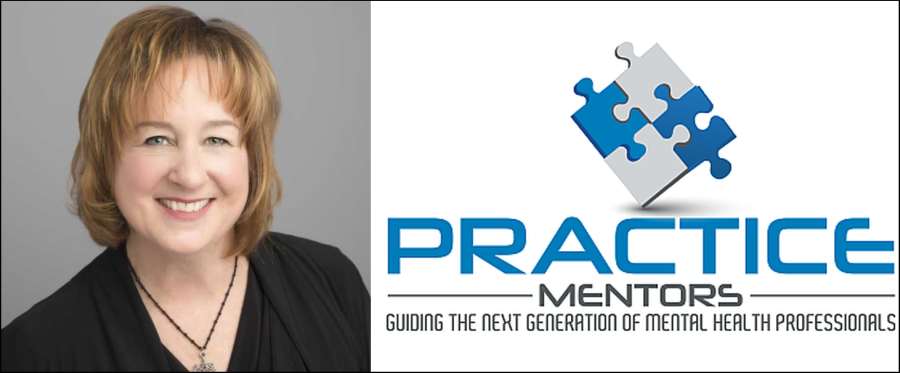Licensing Board Public Comments and Affecting Positive Change

Friday's LMFT Board Meeting was a bit disheartening. We were very disappointed in the apparent lack of focus.
On Public Comments
I stopped participating in the Public Comment portion of these meetings a while back as they are rightfully not a dialogue and, for the most part, the default look of apathy on most of the member faces is demoralizing. But this time we (Phillip and I) were so worked up about a few things we had to chime in. We plan to continue doing so because we're now both convinced that we have to launch as many fronts as possible to win anything with these Boards.
We spoke up on several issues.
LMFT Licensing Board Public Comments
The content in italicized quotes below is what we were able to offer during our 3-minute segment. I have taken the opportunity in this post to further elaborate on these points for your benefit.
“I have several items on my list that I've noticed from today's discussion that I would like to address.”
1. "We've noticed a proposed change to the rules governing an LMFT acquiring the supervisor designation. Currently, the 40-hr designation course may be taken from any licensed supervisor so long as the course being taught satisfies the requirements clearly laid out in the LMFT Rulebook."
Fact: The proposed requirements are (almost) IDENTICAL to those currently laid out in the LPC Rulebook. That's called standardization. The one line item that is LMFT specific could easily be handled by an LPC-S.
Proposed Change: "801.143 This rule change proposal would require/limit an LMFT-Supervisor candidate to take the 40-hour requirement from another LMFT-Supervisor only, and I would like to know why that is."
So, what's wrong with this proposed change?
Economic Impact Considerations
1. This will make it harder to recruit new LMFT Supervisors.
There are 717 LMFT Supervisors in TX on the latest list I obtained from BHEC. 20-30% of them aren't using their "S" for anything which means only 75% of Supervisors are actually "active" in the sense that they are supervising or training anyone. (One can make a really strong case/guess that if they're not training any new Associates, they're not training new Supervisors either.) That gives us 539 active LMFT Supervisors.
I'll wager that fewer than 1% of them are offering a 40 hour designation workshop which means that there are maybe 6 LMFT Supervisors IN THE STATE OF TEXAS that are offering a 40-Hour Supervisor Course.
Six. Maybe. All of Texas.
As a (hypothetical) LMFT, if you eliminate the LPC's offering the course I need you almost guarantee me that I'll be driving across the State of TX much further than I would otherwise need to, to find the course I want from one of these 6. And that's assuming they don't quit offering the course because of the proposed 50% Rule.
That's going to have a negative effect on our numbers. If someone can explain to me how it would increase the number and/or quality of LMFT Supervisors I'd be very open to hearing that argument.
I'll bet you $5 bucks that someone thought that obtaining the S-designation from an LMFT would improve the quality of that LMFT's supervisory education. (This argument is hollow since what's being taught is a standardized list of required topics from your rulebooks.) In fact, just the opposite will occur. If someone offering a product or service is the only game in town (minimal to no competition) then there's no incentive to improve the p/s or lower the price. Check with your economics professor friends!
With all of the regulation we're already under on so many levels, aren't we having enough trouble in the marketplace recruiting new, quality supervisors?? Do we really want to make it even more difficult for these candidates?
2. As an LPC-Supervisor I would no longer be eligible to accept LMFT Supervisor candidates into my 40-hour workshop.
This poorly thought-out effort to improve course quality will adversely affect my business, so now you really have my attention!! What earth-shaking, critical factor is driving the need to change a rule that's been working just fine for several years now, especially changes that will do serious damage to my workshop business? I would love it if someone from the Board would email that answer to me. I really want to know.
This is what happens when any committee gathers to improve things and fails to take the economic impact of their administrative decisions into account. Even minor house-keeping edits can have far-reaching, unintended consequences.
3. And if I'm both an LPC and an LMFT desiring to be a supervisor for both camps, am I going to be obligated to take two 40 hour courses now, one for my LPC S, and one for my LMFT S designation? On top of this, most if not all of these independent stakeholder providers will not be on the Approved Provider List. Let's not forget what part the 50% Rule will do to this.
Request: Unless someone can prove to me that there is a) a real problem, and quantify the negative economic impact, or b) that there is a recurring safety issue to Joe Citizen that's driving this, I respectfully request that this proposed change be killed. It's a solution looking for a problem that doesn't exist, and it only creates new ones.
CE Rules: Here We Go. Again.
Observation: Based on Friday's meeting (apparently) most of the various Board members from one discipline don't follow the board meetings from the others. I would think that with a serious, mandated BHEC focus on "standardization", that that would be the case but apparently not.
The proposed CE Rules Changes look to be cobbled together by a committee primarily (and apparently) intent only on appeasing all 4 Boards (I wasn't there at the committee meetings so I can only infer their intent from the product they put out). This thing, a conglomerate monstrosity, creates more problems than it solves.
The current rules governing ce's to my knowledge, are neither presenting any obvious issues regarding availability of ce's to licensees, nor any negative impact safety issues towards Joe Citizen. So why the change?
In fact, I would again love to hear from any committee member as to the driving factors behind the uber-complexity of the proposed changes. Anyone? I'm willing to be convinced and publish to that effect but for now I have to run with what I can see. (Please don't offer me "standardization" as the reason for change. I know what standardization looks like and I can also tell you that it doesn't mean taking something simple that's working, complicating the living crap out of it, adding more layers of micro-management limiting my ce options, and calling that improvement.)
"A camel is a horse designed by a committee" and this thing is definitely a two-humper.
CE Rule Changes-Our Public Comment
“At PracticeMentors we've spent hundreds of hours tearing this topic apart and uncovering the impact of leaving "Independent Stakeholders" off the approved list. I don't have time to get into the details in a 3 minute public comment segment but the topic is discussed in great detail in a series of blog posts we published explaining the shortcomings.”
1. "I think the board is totally missing the underlying practical application and math problems associated with NOT including Independent Stakeholders on the approved provider list. The combination of the 50% Rule and being left off the A/P List creates real problems for those of us who provide ce courses", and very real complexity issues for licensees tracking their ce's and their practical acquisition.
2. "It sounded to me like the topic (ce rules changes) was dismissed, accepted, and we moved on once the state attys offices ruling about competition was brought up. Whatever that decision may indicate about whether or not independent stakeholders being included in the A/P list is anti-competitive or not, that decision will NOT eliminate the practical, every day problems that the current proposed reading of the ce requirements will present to licensees."
“Kudos to member Jodie Elder for asking the right questions today and heading down the correct path of discovery towards the practical application issues we're talking about here. She was well on her way to an "a-ha!" moment but was clipped at the knees by another board member claiming that "no one is excluded from participation". That board member has obviously not finished thinking through the practical every-day applications.”
I live in a TX town where back in the 40's-50's and 60's some folk had to live and work on "their side of town", usually divided by a set of railroad tracks. You stay on your side of the tracks, we'll go anywhere we want, and you get to say you're included in our town. That is EXACTLY how "included" is being defined here. If you're an independent stakeholder offering ce's well, we're not going to grant you "approved provider status", but we'll let you live in our world so long as you know your place and don't complain about the economic limitations of such an arrangement.
Well I'm not freaking having it!
“I wish every board member would read our posts and more fully understand the unnecessary, negative impact this is going to have before you finalize these ce changes. The posts are not difficult to find on our site.”
Request: I truly believe that the proposed body of ce rule changes should be trashed in their entirety. Then appoint a new committee with fresh eyes and give them a committee-mandate to either standardize a simple, basic core for ce rules across all 4 Boards. Each Board can then add to that as their particular discipline requires. I'd let BHEC be your guide as to what that core needs to look like but the current iteration needs to be nuked, and we begin again with "simple" in mind.
I doubt this will happen though because the good of the many licensees will be outweighed by those who won't let go of the time they have already put into "camel development". Instead they'll play defense and count on process inertia to carry this through. That will be their board legacy, a monstrous behemoth that some future board will have to correct. That's a shame because we deserve better than that.
Summary
1. Don't limit the choices of LMFT licensees or make the already burdensome task of obtaining ce's even more difficult.
2. Publish the considered economic impact of every proposed rule change. We have to police ourselves as a profession but that duty to govern stops when you begin to adversely affect my business. Leave me and my business alone.
3. Trash the proposed ce rule changes across all 4 boards and start over. Take a simplification route this time or just leave well enough alone.
4. Make your voice heard by submitting your written comments. Those get distributed to relevant board members prior to their meetings. I'll make that email addy and some templated content available in a few weeks prior to the next BHEC meeting and we need to make some noise!
We got this.
Plan Smart. Be Safe. Serve Others.
Kathleen Mills, LPC-S, CEAP

Got An Opinion?
These posts are my beliefs based on my a) 32 years of practice as a mental health provider and b) my own research. Whether you agree or disagree, please feel free to leave your civil, constructive comments below. I try very hard to back up my liberty-based statements with my own experience and/or verifiable facts and I would ask you to do the same. You do not need to be logged in to leave a comment.
The Counseling Landscape Workshop Series
The Counseling Landscape Workshop Series Everything we teach is based around The Counseling Landscape. That’s the body of information you need to know in order to run a successful practice, a lot of which is required by BHEC. Completing this series of workshops will put you in the top 5% of all mental health counselors trying to run a practice today and it will put you on a firm, safe foundation. Oh, and each…



Great thoughts. I really appreciate your engagement. Keep up the great work.
The more complicated the solution the less viable it becomes for everyone involved. It increases expense, decreases flexibility, and creates a more rigid and less adaptive field which leads to declines in creativity and progress.
i do have to agree that LMFT’s are often on the outside looking in and that has been lobbied for and legislated in various ways including ability to take certain clients. I no longer support AAMFT because of the positions they were taking on various issues that felt more exclusive than inclusive.
I agree wholeheartedly with everything you just said. And, yes, there are too many egos in the field (my words) playing one-ups-manship with who has the more prestigious license, when we should all be working together as a team for the good of Joe C. Thanks for your feedback.
Kathleen, I appreciate this post and feel several other considerations are unique to LMFTs.
First, there is a monopoly on Supervision Training from AAMFT. From Graduate school thru provisional work, we are advised that the preferred and often only accepted training for states is the AAMFT Supervision Designation. This course work is offered by LMFTs who are supervisors (for a certain number of years), professors and/or clinical trainers, and/or published authors on the various topics within supervision. I attended training myself, and the cost is steep ($750). These two factors alone (cost) and monopolization I believe, are one driving force for limited supervisors. Another limitation is where supervisors are located (geographically and workplace). Most provisionally licensed folks must utilize institutions and systems to gain licensure hours while having an income, whereby many LMFTs are not included (due to ongoing ignorant discrimination) or have non-viable employment opportunities.
I agree that we don’t need monopolization, but I am not confident that some providers can speak to the cannons and ideals of the LMFT profession. LMFTs are the red-head stepchild in the family of psychology. We are rebels, think outside the box, and truly challenge the status quo (at least, that is the tenets). I wonder if this supervision training can speak to that. Can they also reflect the ethics and cannons on social justice, systems thinking, etc.?
I admit that my supervision training from AAMFT didn’t meet my needs because my work and service as an LMFT are beyond the generic face-to-face service provision. I found myself questioning who could supervise me as I supervise LMFTs who are beyond this basic service idea. I work in private practice abroad with military and NGOs, consult, mentor, and collaborate in spaces many our colleagues never imagined. Additionally, I identified as a woman of descent from African Slaves, and I find that our field continues not to reconcile, think beyond, and evolve to reflect a different narrative about mind, body, and spirit.
As I write this, I realize I agree with your arguments that we need more representation, collaboration, and real talk about supervision development and CE opportunities. I also disagree that there is a one size fits all approach or belief that opening up the field will level the playing field. Like you, I will continue my advocacy, education, and collaboration.
You are spot on and your points gave me additional clarity on some of the things that occurred at the LMFT Board meeting Friday. As a professional group we’re so used to doing things the way we’ve always done them, and unfortunately that thought process spills over into our Boards, that we continue an antiquated way of thinking that doesn’t move our profession forward. More to say on all of this that we’ll be submitting to BHEC in our written submission! Stay tuned…
BTW, I’ve NEVER thought of the LMFT’s as the red-headed step-children. Shame on any licensee that would approach you in that manner.
Thanks for your input.